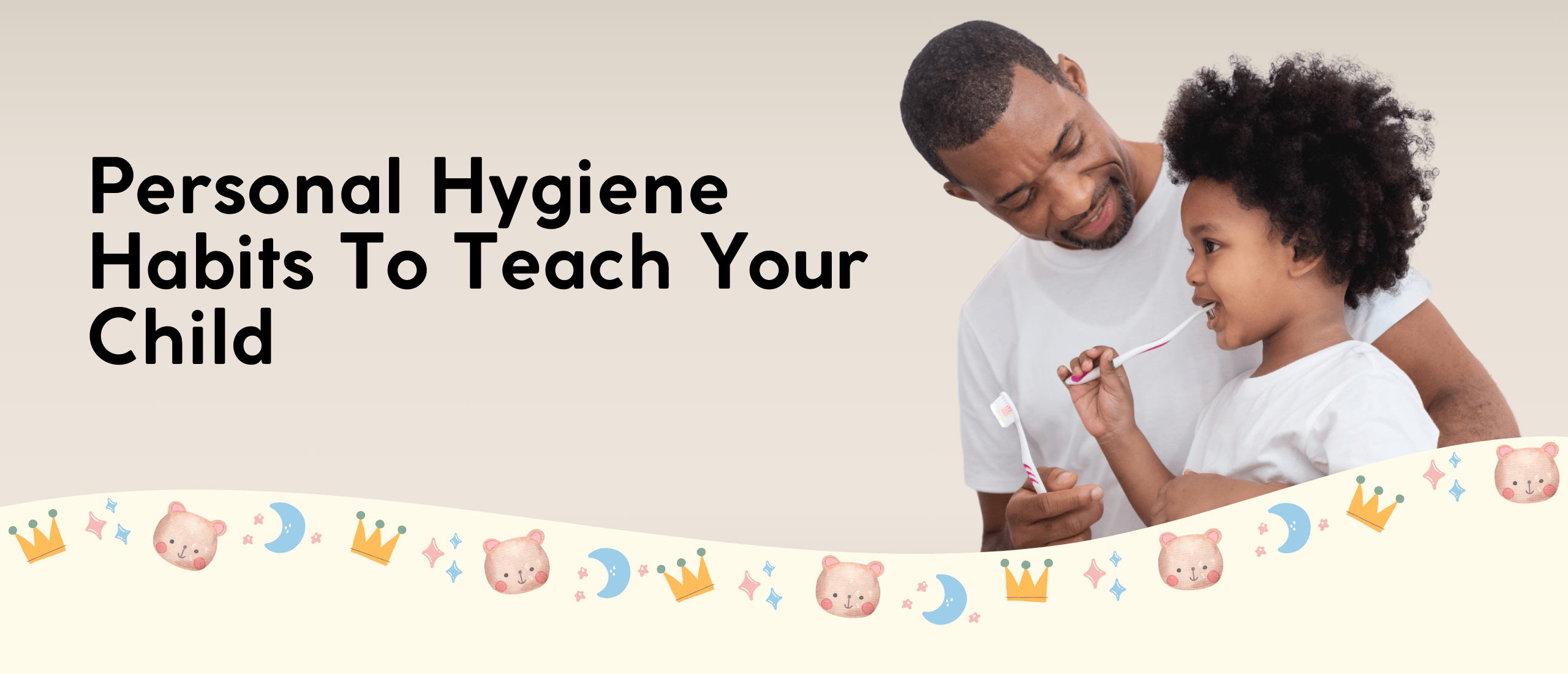


Introducing and reinforcing personal hygiene practices with your child from an early age lays the foundation for lifelong health habits. Here are essential habits to teach and nurture, along with practical tips to facilitate this important learning process.
1. Hand Washing
Teaching your child proper hand hygiene is crucial for preventing the spread of germs and illnesses. Children can start washing their hands around age 2, with your guidance. Show them the five steps of handwashing: wetting hands, applying soap, scrubbing all surfaces (including between fingers and under nails), rinsing thoroughly, and drying with a clean towel. To make it enjoyable, encourage them to sing the “happy birthday” song twice while washing—the recommended duration for effective handwashing.
Remind your child to wash their hands before eating, after using the bathroom, after playing outside, and whenever they come in contact with dirt or potential contaminants. You can make handwashing fun by using colorful or character-themed soap dispensers
Around age 3, introduce your child to bathing independently. Allow them to participate by pouring soap or water under your supervision. Teach them that bathing involves not only cleaning their body but also washing their hair and face. Use gentle cleansers suitable for children’s sensitive skin.
As your child grows older, establish a simple skincare routine that includes using mild soap, water, and moisturizer. Teaching facial hygiene early helps prepare them for skin changes during adolescence.
Start dental care as soon as your child’s first teeth emerge. Begin by brushing their teeth twice a day with a soft-bristled toothbrush and a smear of fluoride toothpaste. Show them how to brush in small circular motions, covering every tooth surface. To keep them engaged, play their favorite song as a timer—encourage them to brush until the song ends.
Supervise brushing until your child is around 6 or 7 years old, ensuring they develop proper brushing techniques and habits. Introduce flossing as soon as teeth start to touch each other to prevent cavities between teeth.
Teach your child the importance of keeping their nails clean and trimmed. Show them how to use child-friendly nail clippers and emphasize the need to trim nails straight across to prevent ingrown nails. Regular nail care helps reduce the accumulation of dirt and bacteria that can lead to infections.
Demonstrate how to wash and comb their hair properly, depending on its length and texture. Use a mild shampoo suitable for children’s hair and show them how to rinse thoroughly to remove all traces of shampoo. Encourage them to brush their hair gently to prevent tangles and breakage.
Teach your child proper toilet hygiene, including wiping correctly after using the bathroom. Show them how to use toilet paper efficiently and encourage them to wash their hands afterward. Instill the habit of flushing the toilet after each use and maintaining cleanliness in the bathroom area.
7. Importance of Sleep Hygiene
While not directly related to personal hygiene practices, emphasizing the importance of good sleep hygiene is essential for overall health. Ensure your child gets adequate sleep each night, establishing a consistent bedtime routine that includes calming activities like reading or listening to soft music.
At Baby Step Boutique, we believe in promoting overall well-being for children, which includes not only teaching essential hygiene habits but also providing them with comfortable and safe clothing options. Our organic cotton clothing line is designed with your child’s health and comfort in mind. Organic cotton is free from harmful chemicals and pesticides, making it ideal for sensitive skin and reducing environmental impact.
By incorporating these essential personal hygiene habits into your child’s daily routine and dressing them in organic cotton clothing from Baby Step Boutique, you’re not only teaching them valuable life skills but also promoting their overall well-being.
Remember to model these behaviors yourself and provide positive reinforcement to encourage your child’s autonomy in maintaining good hygiene. By starting early and making hygiene practices enjoyable, you’re setting a solid foundation for your child’s health and future habits.
Encourage a positive attitude towards personal hygiene, framing it as a way to care for and respect their body. With your guidance and support, your child will develop healthy habits that will benefit them throughout their lives.